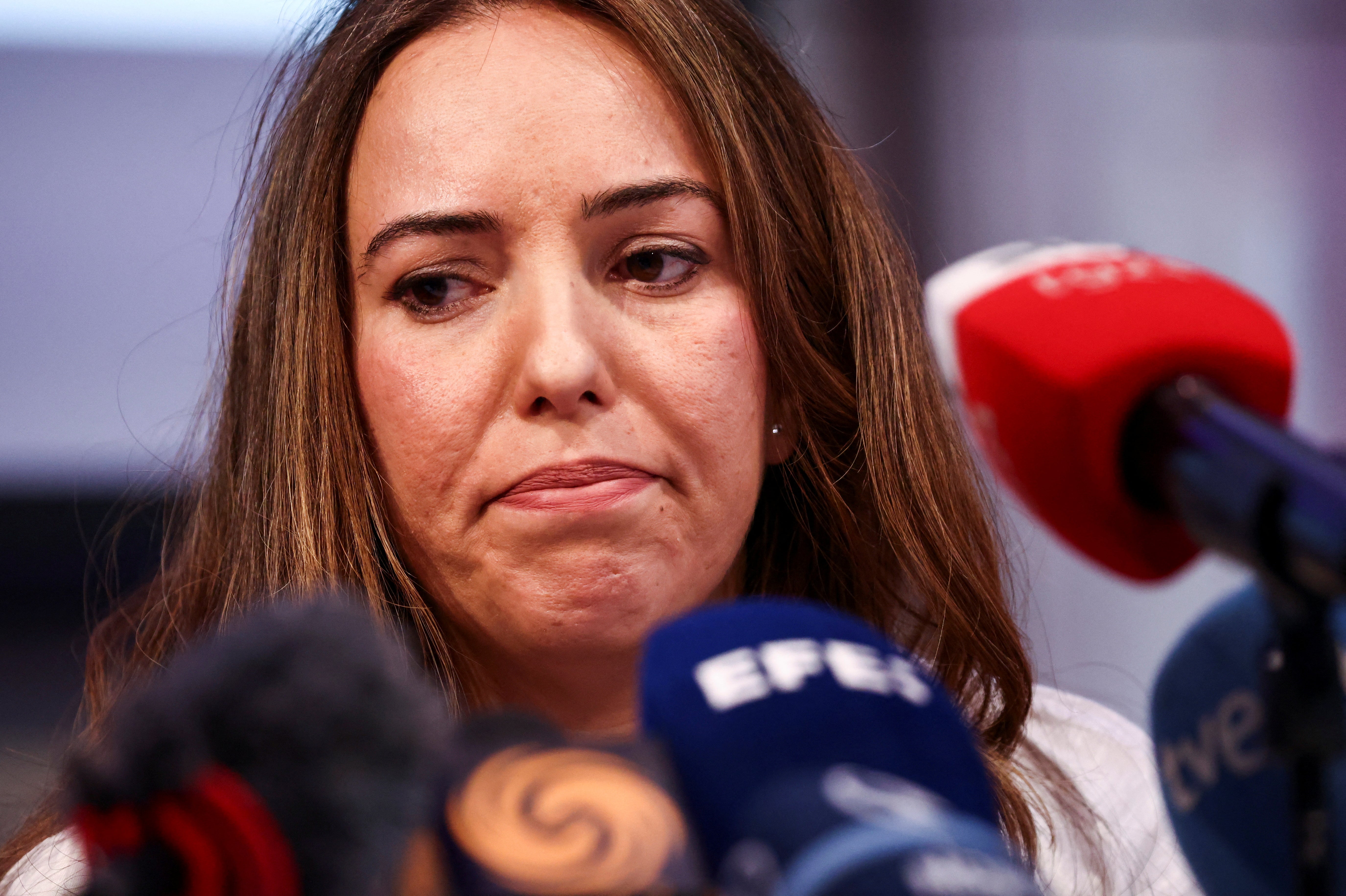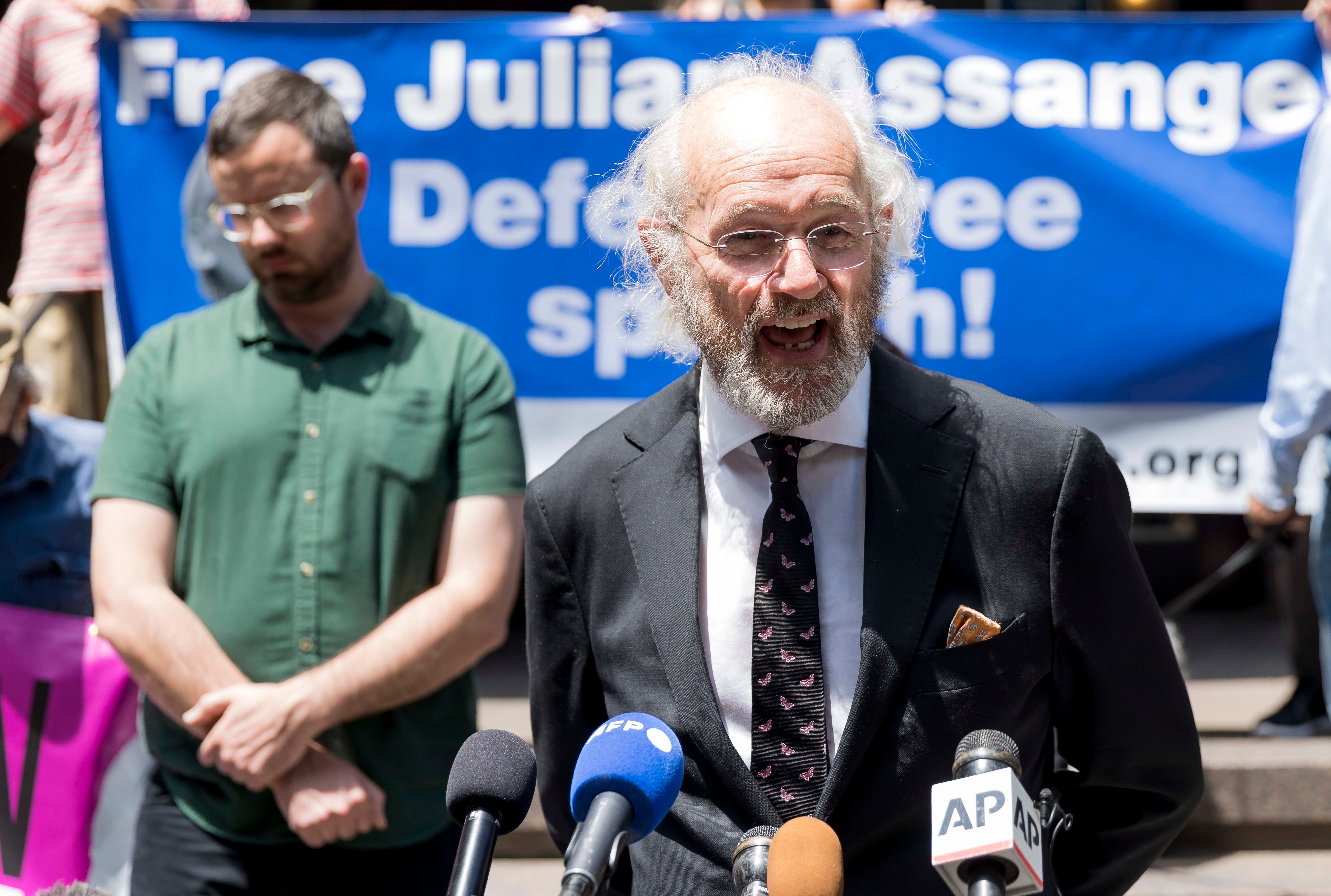Julian Assange: Supporters of Wikileaks founder vow to appeal extradition order
Lawyers will appeal decision described as ‘dark day for press freedom and British democracy’
Your support helps us to tell the story
From reproductive rights to climate change to Big Tech, The Independent is on the ground when the story is developing. Whether it's investigating the financials of Elon Musk's pro-Trump PAC or producing our latest documentary, 'The A Word', which shines a light on the American women fighting for reproductive rights, we know how important it is to parse out the facts from the messaging.
At such a critical moment in US history, we need reporters on the ground. Your donation allows us to keep sending journalists to speak to both sides of the story.
The Independent is trusted by Americans across the entire political spectrum. And unlike many other quality news outlets, we choose not to lock Americans out of our reporting and analysis with paywalls. We believe quality journalism should be available to everyone, paid for by those who can afford it.
Your support makes all the difference.Supporters of Julian Assange have vowed to continue the legal fight to stop the Wikileaks founder being sent to the US to face espionage charges after Priti Patel signed an order approving his extradition.
His lawyer Jennifer Robinson said they would appeal the home secretary’s decision and take their case to the European Court of Human Rights if necessary.
She said: “We have 14 days and we will appeal this all the way.”
Mr Assange’s wife Stella Moris, herself a lawyer, said she would use “every available avenue” to oppose the order, adding: “I’m going to use every waking hour fighting for Julian until he is free.”
She claimed the CIA had previously tried to assassinate her husband and said he would likely kill himself if extradited. “Julian wants to live but he wants to live with the possibility of freedom and the possibility of being with his children and with me. He has reasons to fight while he’s here.
“If he’s extradited to the US, the conditions he will be under will be oppressive. It will drive him to take his own life,” she said.
The decision was described as “a dark day for press freedom and for British democracy” by Wikileaks.
“Julian did nothing wrong,” said the group in a statement. “He has committed no crime and is not a criminal. He is a journalist and a publisher and he is being punished for doing his job.”

The US has been seeking to put Mr Assange on trial since his website in 2010 published a series of leaks from army intelligence officer Chelsea Manning which pointed to wrongdoing by American forces in Iraq and Afghanistan. He was charged by a federal grand jury in 2019 on 18 counts relating to the handling of classified information.
During a press conference outside the British Consulate in New York City on Friday, MrAssange’s father, John Shipton, urged the US to drop the prosecution. “All it will take is a simple telephone call from [US attorney general] Merrick Garland to the home secretary in the United Kingdom to drop these charges. That’s all it will take. It’s not complex,” he said.
Mr Assange has been in Belmarsh high-security prison in London since April 2019. He was arrested after spending seven years in the embassy of Ecuador after breaching bail on an extradition order to face sexual offence charges in Sweden, which were dropped later in 2019.
After a High Court ruling in favour of the US last December, Mr Assange’s extradition was formally approved by Westminster Magistrates Court in April.
A Home Office spokesperson today said: “Under the Extradition Act 2003, the secretary of state must sign an extradition order if there are no grounds to prohibit the order being made. Extradition requests are only sent to the home secretary once a judge decides it can proceed after considering various aspects of the case.
“On 17 June, following consideration by both the Magistrates Court and High Court, the extradition of Mr Julian Assange to the US was ordered. Mr Assange retains the normal 14-day right to appeal.
“In this case, the UK courts have not found that it would be oppressive, unjust or an abuse of process to extradite Mr Assange. Nor have they found that extradition would be incompatible with his human rights, including his right to a fair trial and to freedom of expression, and that whilst in the US he will be treated appropriately, including in relation to his health.”

Senior broadcaster John Simpson was one of the first to speak out against the extradition decision.
“Journalists in Britain and elsewhere will be very worried by the decision to extradite Julian Assange to the US – both for his own well-being and for the precedent it creates for journalism worldwide,” said Mr Simpson.
Quinn McKew, executive director of the Article 19 campaign for freedom of expression, said: “The Home Office’s decision to extradite Julian Assange exposes its complicity in undermining press freedom just as it claims to be a world leader on freedom of expression.
“It also sends a worrying message to the world that journalists, activists and anyone who exposes important truths about crimes – including those committed by governments and businesses – do not deserve protection for their rights to impart information and speak freely.
“Article 19 urges Priti Patel and the UK government to reverse this decision.”
Agnes Callamard, Amnesty International secretary general, said: “Allowing Julian Assange to be extradited to the US would put him at great risk and sends a chilling message to journalists the world over.”

Join our commenting forum
Join thought-provoking conversations, follow other Independent readers and see their replies
Comments